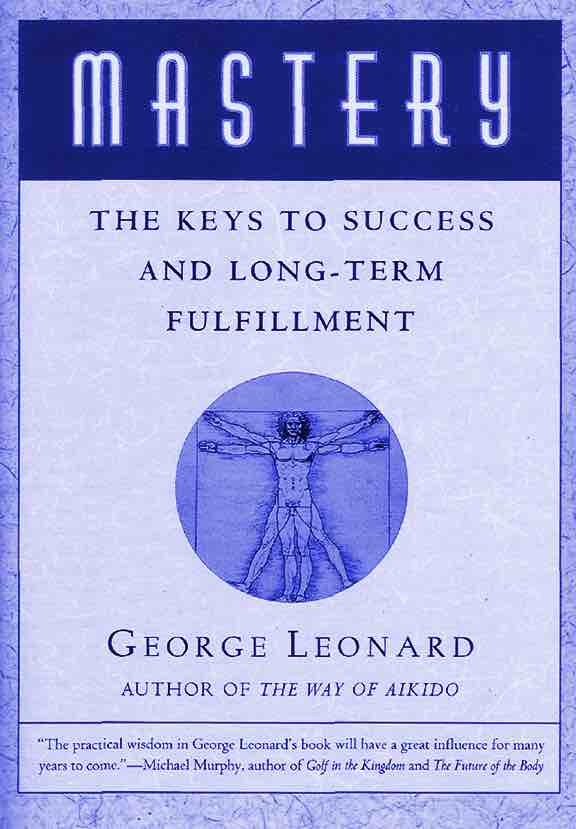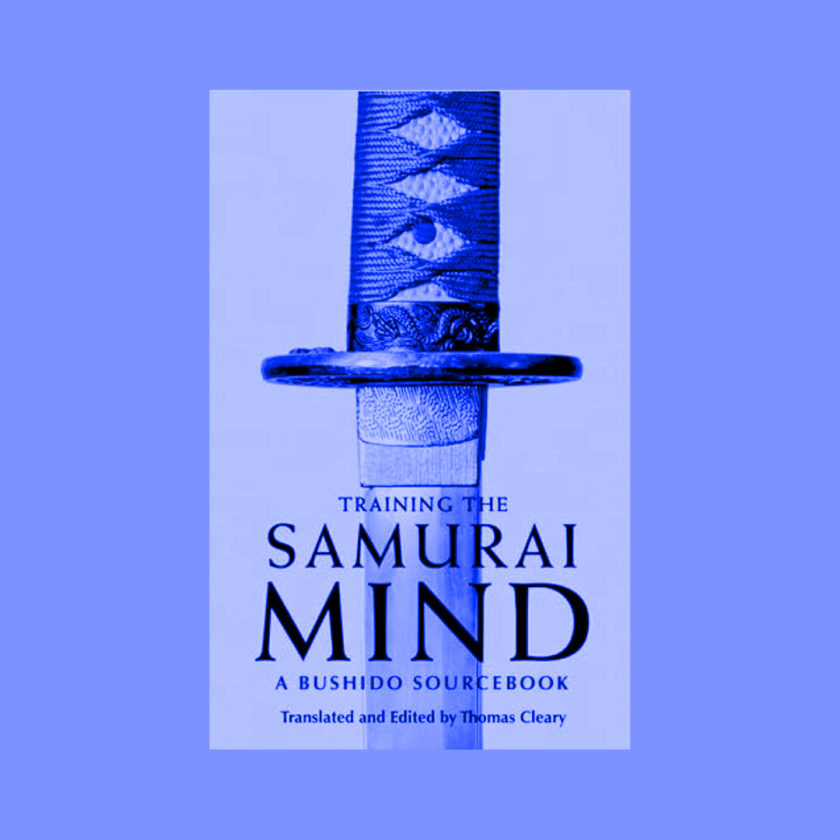In the pursuit of excellence and mastery, a fundamental shift in perspective becomes necessary. It is crucial to embrace the process itself, allowing passion to thrive while disregarding the external rewards that may follow. Mastery goes beyond mere material success; it reaches a level of fulfilment that transcends worldly achievements. However, the journey towards mastery cannot be hurried or circumvented—it requires unwavering dedication and consistent hard work. During this transformative expedition, the focus should remain on the process rather than fixating on immediate results, as this perspective proves invaluable in navigating the inevitable challenges along the path to mastery. Indeed, the pursuit of mastery is not a finite destination but an ongoing and ever-evolving process, necessitating perpetual effort and relentless practice.

Mastery Dwells In The Mind Of The Master
Becoming a master requires a paradigm shift in focus. Aspiring to be at the top of your field requires a change of perspective where the process of practice is pursued for its own sake. In achieving mastery, it is imperative that one falls in love with the process while disregarding the fruits that may come.
The journey to mastery is like a game. However, before reaching such a level, one must first acquire the necessary skills. What sets apart masters from others is their playful and innocent attitude towards their work. They approach their craft with a passion that is akin to a child playing a game they truly enjoy.
The road to becoming a master is challenging. It is a process that requires hard work, discipline, and dedication. But it is a journey that is worth it. When one reaches the level of mastery, they achieve fulfilment that surpasses any material success.
One key characteristic of masters is their love for the process. Unlike others who may be motivated by external factors, such as rewards or recognition, masters are motivated simply by the enjoyment of the process. They are not intimated by challenges, and they view obstacles as opportunities to learn and grow.
Another quality that sets masters apart is their willingness to learn and continuously improve. They never stop developing their craft, no matter how skilled they may already be. They are always seeking to refine their skills and learn new things. Their desire to grow and learn is an endless pursuit that never loses its allure.
Mastery lies within the mind of the master. It is a state of being that is achieved through a continual pursuit of growth and self-improvement. But to reach that state, one must first change their perspective and approach the journey with a playful and innocent heart.

Plateauing Is Always There That’s Why Disinterest For The Results Is So Important
Plateauing is always a presence in the journey towards excellence, which is why disinterest in the results is so important. In any endeavour that requires mastery, there are often periods of stagnation or even regression that can be frustrating and discouraging. However, it is during these plateaus that one can typically find the true test of character and whether an individual has the necessary resilience and determination to persevere in the pursuit of excellence. The discomfort of being caught in a plateau is something that anyone who has endeavored in a challenging discipline can relate to. Not only does stagnation detract from the sense of progress and momentum that comes with improvements, but it can also cause one to doubt their ability and their capacity to progress further. However, it is at precisely this point that disinterest in the results becomes important. This disinterest doesn’t mean complete apathy towards one’s goals or successes; rather, it means recognition and acceptance that the process alone is what matters.
The mastery journey is a process, and one that cannot be rushed or shortcut. Mastery requires dedication, hard work, and time. Plateauing is a natural part of this journey, and one that should not be feared or shied away from. Instead, it should be embraced and used as an opportunity to acknowledge the weaknesses and areas that need improvement. The plateau is not a sign of failure, but rather an indication that there is still work to be done in order to reach one’s desired level of proficiency.
It is precisely during these plateaus that a true mastery mindset emerges. It is easy to perform when one is seeing constant positive results, but it is in the midst of plateaus that one has to focus on the process instead of the results. Maintaining this perspective requires a level of disinterest in the results that is counterintuitive to human nature. However, it is this shift in focus that can help one to get through the difficult periods that are an inevitable part of any mastery journey.

Start Simply
Starting simply in any field can be the key to success. This concept is not just applicable to the realms of sports or academics, but also to mastering any skill. It is easy to get intimidated when confronted with a new subject, but it is imperative to start simple and build up from there. Mastery is a marathon, not a sprint and every single step counts. The difference between an apprentice and a master lies in the way their brains are wired. Their bodies may look the same, but the way they process information, solve problems, and respond to stimuli is vastly different. The journey to becoming a master in any field, whether it be a sport, an art form, a musical instrument or a craft, requires incredible dedication and consistent hard work. It is a journey of training the mind to focus and learn in a certain way, and this takes time.
To make this journey manageable and achievable, it is important to start simple and build up from there. Your subconscious mind learns through repetition and practice. Performing simple tasks repeatedly creates stronger neural connections, and that leads to a better wiring of the brain. It is natural to feel frustrated and put off by simplicity, but remember that the more you practice, the better you will get.
Inertia is when an object, or in this case, the brain, resists a change in motion and prefers to stay in its current state. The subconscious mind resists new information because it takes a lot of energy to process and encode it. This is the reason why it is important to start with simple tasks. Mastering simple tasks enables the brain to learn the foundational skills necessary for more complex tasks.
Once you have mastered simple tasks, you can gradually increase the difficulty level of the task. With each increment, the brain adjusts, learns, and grows. By starting and building on what you already know, you make the learning process manageable, which makes the journey to mastery feel achievable. This is why starting simply is key to success, and why it is a mantra that every apprentice should embrace.

Habits Are More Important Than Results
The Importance of Consistent Action and Discipline for Skill Acquisition.
In today’s fast-paced world, we are all chasing results. We want the success, the fame, and the money that comes with it. However, when we focus too much on results, we often forget the most crucial factor that leads to success: our habits.
I strongly believe that habits are the cornerstone of skill acquisition. It is through consistent action and disciplined practice that we can improve our skills and achieve mastery in any field. While it is important to have high expectations regarding our commitment and discipline, we also need to be patient with the results.
Naval Ravikant, a famous entrepreneur and philosopher, is known for his quote, “Be patient for the results and impatient for your actions.” What this means is that we should focus on the actions we take to achieve our goals rather than constantly obsessing over the results. By being patient and persistent in our day-to-day actions, we can eventually see the results we desire.
Let’s take the example of writing. Most people want to become better writers, but they focus too much on the end result, such as publishing a book or getting thousands of readers. Instead, they should focus on the habits that will make them a better writer. This includes consistent writing practice, reading widely, and seeking feedback from others.
By creating a daily writing routine, you can gradually improve your skills and become more confident in your craft. While you may not see immediate results, like getting published or winning a literary prize, you are building the foundation for long-term success. The consistent actions you take are the key to improving your writing and achieving your goals.
Another example is exercising. Many people set goals to lose weight or gain muscle, but they often focus too much on the end result. Instead, they should focus on the daily habits that will lead to weight loss or muscle gain, such as eating a healthy diet and working out regularly.
By making exercise a part of your daily routine, you can gradually improve your fitness level and achieve your goals. While you may not see immediate results, like losing 10 pounds in a week, you are building the foundation for long-term success. The consistent actions you take are the key to improving your health and achieving your fitness goals.

Don’t Look For Quick Fixes
I must stress the importance of avoiding the mentality of quick fixes when striving for mastery. We live in a society where instant gratification rules our decision making, but this mentality simply does not translate to the pursuit of excellence.True mastery requires deep commitments, which often come with uncomfortable and painful experiences. We must embrace these moments in order to truly learn and grow. It’s through our struggles that we find our inner strength and resilience. It’s through our failures that we learn valuable lessons that ultimately shape our success.
Avoiding discomfort and pain takes us away from the very experiences that we need to learn and grow. We become complacent and stagnant, never moving beyond the limits we set for ourselves. When we stop pushing ourselves to our limits and beyond, we stop evolving and improving.
To truly excel, we must put ourselves in positions where success is the only option. This means taking risks, facing challenges head-on, and putting in the necessary time and effort to achieve our goals. The path to mastery is not easy, but it is certainly worth it.
Quick fixes and shortcuts may provide temporary relief, but they only serve as distractions from the hard work that is required for true mastery. We must be willing to endure temporary discomfort in order to achieve long-term success.
So let us lose the mentality of quick fixes and embrace the struggles that come with the pursuit of excellence. Let us embrace our discomfort and pain as valuable experiences necessary for our growth and development. Only then can we truly achieve mastery.

“In the long run, the war against mastery, the path to patient, dedicated effort without attachment to immediate results, is a war that can’t be won.” George Leonard
The pursuit of mastery is a noble and highly sought-after goal. Whether it be in the sciences, humanities, or arts, the development of expertise and skill is celebrated and revered. However, the path to mastery is not an easy one. It requires dedication, patience, and a willingness to engage in constant self-improvement.In the words of the great martial arts master, George Leonard, “the war against mastery, the path to patient, dedicated effort without attachment to immediate results, is a war that can’t be won.” What Leonard means by this is that the pursuit of mastery is not a finite journey, but rather an ongoing process that requires constant effort and practice. There will always be new challenges to overcome, new skills to develop, and new heights to reach.
One of the key characteristics of mastery is the ability to persevere in the face of adversity. As Leonard notes, “you can always beat a beginner in any field but if that person is seriously committed to becoming a grand master, you may not beat him again in the long-run.” This statement speaks to the idea that true mastery is not just about outperforming others, but about continually pushing oneself to improve and excel.
Another important aspect of the path to mastery is the development of a growth mindset. This involves not only a willingness to learn and adapt, but also a recognition that setbacks and failures are an integral part of the learning process. As Carol Dweck, a leading researcher on mindset, notes, “the path to mastery is not lined with roses. It’s filled with obstacles and setbacks – but each of these is an opportunity to learn and grow.”
In addition to these qualities, the pursuit of mastery also requires a deep level of focus and commitment. Distractions and diversions can easily derail progress, and the path to mastery can be a long and arduous one. However, for those willing to put in the effort and stay the course, the rewards can be immeasurable.

You can always beat a beginner in any field but if that person is seriously commited to becoming a grand master, you may not beat him again in the long-run.
In the world of skill acquisition, it is commonly believed that one can always defeat a beginner, no matter the field. However, the interesting twist to this story is that if the beginner in question is utterly obsessed with becoming a grand master in their chosen field, defeating them again in the long-run may be quite a daunting task.The road to grand mastery is a challenging one, and it requires a tremendous amount of effort, persistence, and discipline. A beginner who is only seeking to dabble in a field may think lightly of the hard work required, and therefore may be easily beaten. However, a beginner who is passionately committed to their journey has recognized the magnitude of their undertaking and is willing to pay the price for their eventual success.
In essence, this level of determination enables perfection in every area of the craft, and eventually, those who have paid the price of diligent practice will possess exceptional skills that prove to be a challenge to compete against. Their focus on excellence and not solely on winning or losing, allows them to improve continuously, sharpening their talents and evolving into masters of their chosen craft.
Understanding that mastery is a process, not a destination, and requires intense study, the beginner who chooses to pursue this path must prepare for a long and arduous journey that includes moments of intense failure, and setbacks. Inevitably, however, with consistent practice the journey becomes a precious adventure of continual growth, self-discovery, and triumph.
I could not resist the need to reference the Dreyfus Model of skill acquisition which suggests that there are five levels of skill progression: novice, advanced beginner, competent, proficient, and expert. Transitioning from one level to the next requires a unique set of skills, and the committed beginner’s pursuit of grand mastery demands that they diligently and consciously work towards achieving the expertise level.
Although defeating a beginner may seem easy, it would be an underestimation to assume that the individual would remain a novice forever. It would also be close-minded to assume that the beginner’s focus was solely on winning and not on the mastery of the skill.
Indeed, it has been proven time and again that beginners who have a passion and determination for their craft, who have committed themselves to the arduous process of skill acquisition, eventually become grand masters in their fields. Therefore, for those who tend to underestimate a beginner, it is best to reconsider their pursuits towards grand mastery before writing them off as being merely a novice.

Human Evolutionary Advantage Is Rooted In The Way He Uses His Brain And Tools
Human beings have long been fascinated by the question of what sets us apart from other species on this planet. On a purely physical level, it is clear that humans are not the strongest, nor do we have the sharpest claws or the thickest skin, compared to many of our animal counterparts. However, our evolutionary advantage lies in the way we have learned to use our brains and tools, as well as in the cooperative dynamics that exist within our species.One area where humans truly excel is in endurance running, as we are the only animal that is capable of running for virtually unlimited periods of time. This trait has likely been advantageous to us in the past when it comes to tracking game and eventually exhausting it. However, beyond running, we are far behind other animals in terms of physical strength, weaponry, and biting power.
This is where our brains come in. Our ability to reason and think abstractly has allowed us to develop complex tools and technologies that have given us an edge over other animals. Through trial and error, humans have created weapons, farming implements, and countless other devices that have aided in survival and enabled us to dominate our environment.
Moreover, our ability to work cooperatively has been critical to our success as a species. Unlike other animals, humans are able to cooperate in large groups that span cultural and geographical boundaries. This enables us to pool our resources, knowledge and talents to create complex systems of trade, governance, and social organization.
Rather than trying to fix our physical shortcomings, we should focus on empowering our brains by acquiring skills and mastering any field that we choose to enter. Our evolutionary advantage lies in our ability to innovate and adapt, and in the ways in which we collaborate with one another. By nurturing these qualities, we can continue to push the boundaries of what is possible, and achieve great things as a species.

Being A Slow Learner Is A Blessing
In today’s fast-paced society, we are often encouraged to learn quickly, to move at lightning speed in order to keep up with the constant demand for knowledge and skill. However, what if I told you that being a slow learner is actually a blessing?
Learning slowly has its advantages. It compels you to delve deeply into the process, enabling you to identify incremental steps that you may overlook if progress comes effortlessly. By taking your time and being meticulous, you can gain a comprehensive understanding of the subject matter. This thorough approach can be incredibly beneficial in aiding you to achieve your goals.
The process of learning is not just about absorbing information and ticking off boxes. It is about internalizing the knowledge and building a solid foundation upon which to grow. If you rush through the learning process, you may simply neglect the most fundamental parts of it, which can result in an incomplete assimilation of the knowledge.
The slow and steady approach allows you to truly grasp the intricacies of a subject. It allows you to immerse yourself in the material, to explore the depths of it and connect the dots in ways that may have otherwise gone unnoticed. This type of learning cultivates a deep understanding and appreciation for the subject, which can be incredibly fulfilling.
Moreover, being a slow learner means that you are not afraid to ask questions, to seek clarification, and to truly engage with the material. You are not concerned with appearing to have all the answers or getting everything right on the first try. Instead, you are focused on learning for the sake of learning, for the intrinsic value that it holds.
In academia, this approach is highly regarded. It is the mark of a true scholar, someone who is dedicated to their craft and willing to put in the time and effort required to truly comprehend the material. It is also an approach that can be applied outside of academia, in all areas of life.
So, don’t be frustrated if your learning takes more time than you expected. Embrace the process and take your time. Resist the temptation of comparing yourself to others, who may be learning at a different pace than you. Remember, it is not about the speed at which you learn, but the depth of your understanding.

“Mastery is practice. Mastery is staying on the path.”
Mastery is Practice. Mastery is Staying on the Path.If you want to achieve mastery, you have to be prepared for a journey that never ends. It is not a destination but an ongoing process of learning, practice, and improvement. The journey demands discipline, dedication, and an unwavering commitment to staying on the path. You have to resist the lure of distractions and temptations and focus on your goals with the determination to succeed. I believe that the pursuit of mastery is an essential goal for anyone who wants to excel in their chosen field.
The first step towards mastery is to learn everything you can about your chosen subject. You need to acquire knowledge and understand the fundamental concepts that will form the basis of your expertise. You have to be willing to learn from the best sources and be open to new ideas and perspectives. Once you have a solid foundation, you need to practice relentlessly to develop your skills and hone your craft. Practice is not a one-time event but a continuous process that requires dedication and persistence.
Staying on the path is perhaps the most challenging part of the journey towards mastery. The temptation to give up or switch paths can be overwhelming, especially when progress seems slow. It is crucial to remember that mastery takes time, and progress is rarely linear. Plateaus and setbacks are part of the process, and they can be opportunities to learn and grow. When faced with obstacles, it is essential to stay focused and motivated, trusting that your efforts will eventually pay off.
To stay on the path, it is essential to set specific and achievable goals. These goals should be challenging but realistic, and they should be broken down into smaller milestones that can be measured and tracked. Regular self-assessment and feedback from mentors or peers can help you stay on track and make progress towards your goals.
Another critical aspect of staying on the path is cultivating a mindset of continuous improvement. Mastery is not a static state but a dynamic one, and there is always room for growth and development. Feedback, reflection, and self-evaluation can help you identify areas for improvement and work on enhancing your skills and knowledge.

“The essence of boredom is to be found in the obsessive search for novelty. Satisfaction lies in mindful repetition, the discovery of endless richness as subtle variations on familiar themes.”
The debate on the essence of boredom has led to various schools of thought, with different views and opinions. However, renowned academic and philosopher, Pico Iyer, offers a unique perspective that sheds light on this concept in a fresh and insightful way.In his profound statement, Iyer argues that the obsessive search for novelty is the root of boredom. He contends that the human desire for something new and exciting, combined with our ability to adapt quickly, has created a culture that values instant gratification and novelty above all else. This culture, in turn, leaves us feeling unfulfilled and bored with our lives.
Iyer claims that true satisfaction and fulfillment come from mindful repetition and the discovery of endless richness as subtle variations on familiar themes. He suggests that the key to finding meaning in life is not to seek novelty at all costs, but to appreciate the small nuances and subtle differences within the familiar.
But how is it possible to find novelty in things that seem mundane? According to Iyer, it all comes down to perspective. A true master sees the world differently than most people. Whilst others see only the surface of things, a master sees the underlying depth and complexity that lies beneath.
Moreover, Iyer argues that a real master knows what they do not know. This acknowledgment of their own ignorance allows them to approach familiar topics with a curious and open mind, always seeking to uncover new depths and nuances.
In this way, the pursuit of novelty becomes less of an obsession and more of an ongoing journey of discovery and self-improvement. As Iyer so eloquently puts it, “the discovery of endless richness as subtle variations on familiar themes.” With this approach, even the most mundane of tasks can become an opportunity for growth and self-discovery.

“Almost without exception, those who are masters are dedicated to the fundamentals of their calling. At the same time, they are the ones most likely to challenge their previous limits.”
Academic writing is often characterized by its precision, clarity, and commitment to rigorous research and analysis. These qualities are essential for anyone seeking to become a master in their field. Indeed, almost without exception, those who have achieved mastery are dedicated to the fundamentals of their calling. They understand that a commitment to the basics is the foundation upon which great achievements are built.The dedication to fundamentals does not mean, however, that masters are content to stay within their comfort zone. Instead, they are the ones most likely to challenge their previous limits. A true master is not afraid to try new things, to experiment, or to take risks. They understand that progress comes through experimentation and innovation. And they are willing to take the time and effort necessary to explore new avenues and develop new skills.
At the same time, however, masters never lose sight of the importance of the fundamentals. They understand that the key to their success lies in their ability to build on the basics, rather than abandoning them in favor of flashy or trendy techniques. To be a full-fledged master, you must be willing and even joyful to return to the fundamentals of your craft again and again.
This commitment to the basics is not a sign of weakness or lack of imagination. Rather, it is a testimony to the power of fundamental principles. By studying and understanding the basics of their field, masters are able to see beyond superficial trends and fads, and to develop a deeper understanding of the underlying principles that govern their work.
In this sense, a master is a lifelong learner. They never stop seeking out new knowledge and new challenges, no matter how accomplished they may be. For them, the pursuit of excellence is a never-ending journey. They understand that mastery is not something that can be achieved once and for all, but rather an ongoing process of discovery and growth.

To Be A Master, You Need To Aim At Something Infinite
To be a master in any field of endeavor is a goal that requires relentless refinement of one’s skills and knowledge. It is a journey that is never-ending, and it requires a constant pursuit of excellence. However, to truly become a master, one needs to aim at something infinite.But what does aiming at something infinite really mean? It means that the goal is idealistic and cannot be achieved in its entirety. The pursuit of this goal is a never-ending journey, with no final destination. The goal, in this sense, is more like a north star, something that guides your journey towards mastery, but can never be fully reached.
Infinite goals are the highest expressions of moral values such as courage, integrity, purity, or harmony. These values are more than just concepts; they are guiding principles that shape the way we live our lives.
For a master, the pursuit of these infinite goals is a daily quest. If they were to achieve them, it would be a mere pause in the journey, a moment of reflection before continuing on the path towards perfection. The true test of a master is not whether they have achieved these goals, but how they have lived their lives in pursuit of them.
The reason why masters aim at infinite goals is that it enables them to create a part of the universe in their mind, soul, and spirit. By aligning themselves with the highest moral values, they become a vessel through which the universe expresses itself. This is what allows them to achieve extraordinary things, pushing the boundaries of what is possible, and leaving a lasting legacy.

You Can Look For Mastery Everywhere, Even In Relationships
In the pursuit of mastery, we often look to personal achievements and professional goals as the benchmark of success. But what about relationships? It’s an area of our lives that we may overlook or undervalue when it comes to the pursuit of mastery. However, applying the same mindset and approach to relationships as we do to our personal and professional endeavors may be the key to unlocking greater satisfaction and fulfillment in our love lives.One of the primary reasons we may avoid the pursuit of mastery in relationships is the fear of failure. Relationships hold a level of emotional significance that can make the stakes feel higher. But when we approach relationships with a learner/master mindset, we can shift our focus from the potential of failure to the opportunity for growth and improvement.
Think of your relationships as a project in its own right – something that you can invest time and effort into to make it flourish. Just as you would approach a new project at work, you can set achievable goals for your relationships. These goals may include better communication, more quality time together, or simply finding new ways to connect on a deeper level.
Just like any other pursuit of mastery, there will be setbacks and challenges along the way. But when we approach relationships with a learner/master mindset, we can use these obstacles as opportunities for growth and learning. As we navigate challenges with our partners, we can identify patterns and solutions that will help us grow and improve as individuals and as a couple.
The pursuit of mastery in relationships also requires dedication and perseverance. Just as we would devote time and effort to our personal and professional goals, we must also dedicate ourselves to nurturing and growing our relationships. This means prioritizing our partners and carving out time for quality moments together. We must also remain committed to the pursuit of mastery in our relationships, even when the road gets bumpy.

Interpret The Alarm Bells In The Right Ways
A Lesson in Self-ReflectionIt is a natural human response to want to avoid uncomfortable situations. Negative emotions such as fear, anger, and general discomfort can be overwhelming and unsettling, and often cause us to feel out of control. However, it is important to understand that these emotions are not necessarily bad signals. In fact, they can serve as signals of growth. Learning how to interpret alarm bells in the right ways is a crucial skill in personal development, and can help deepen your understanding of yourself.
It is essential to approach this topic with a curious and analytical mind. Begin by acknowledging that alarm bells are simply an emotional response to a situation. They are not necessarily rooted in reality, but rather, they stem from our perceptions and interpretations. Think of them as messages from our subconscious, telling us that something is not right.
Before dismissing these signals as negative or harmful, first, take a step back and reflect on why you are feeling this way. What is it about this situation that is causing discomfort? What emotions are you experiencing? Is it fear? Is it anger? Or is it a feeling of general unease? By understanding the root cause of these emotions, you can gain a better insight into yourself and your needs.
It is important to note that there are times when protecting yourself is necessary. If a situation is damaging your peace of mind or wellbeing, it is crucial to prioritize your health and remove yourself from the situation. However, before taking this step, try to reflect on what led you to this conclusion. Is it a fear of failure that is driving your decision? Or is it a genuine concern for your mental or physical health? Understanding the motivations behind your actions can help you make more informed choices in the future.
When we approach alarm bells as signals of growth, we allow ourselves the opportunity to learn and develop. By embracing uncomfortable situations, we are pushing ourselves out of our comfort zones and taking steps towards personal growth. Rather than avoiding these situations and retreating back into our safe spaces, we are engaging with the unknown and broadening our horizons.

Your Body Helps Your Mind To Function Better
The mind-body dichotomy has been a topic of discussion for centuries with several philosophical and religious schools of thought expressing their opinions. However, recent studies have revealed that nurturing and exercising your body can significantly enhance your mental and creative abilities.A healthy body can greatly impact your mental well-being. It can help you feel more energized, focused and productive throughout the day. This is because the body uses endorphins and other neurotransmitters to communicate with the brain, leading to enhanced cognitive function.
Engaging in regular physical activity has been found to increase gray matter in the brain, which is responsible for processing sensory information and memory formation. Additionally, studies suggest that cardiovascular exercise improves neuroplasticity, which is the brain’s ability to adapt and change.
Moreover, physical fitness can also boost creativity. Exercise leads to the production of new neurons in certain areas of the brain, which can help you think more freely and creatively. Studies have shown that walking, in particular, can increase creative output by up to 60%.
Conversely, a strong mind and disciplined thought process can be beneficial for the body. The mind can help you motivate yourself towards exercise and ensure that you follow through with your physical fitness goals. By being mindful of your body’s needs, you can develop healthier habits, such as eating a balanced diet and getting adequate sleep.

A human being is the kind of machine that wears out from lack of use. There are limits, but for the most part we gain energy by using energy.
From an academic standpoint, a human being can be classified as a machine that requires regular use to function at its optimal level. Just like any mechanical instrument, our body can wear out from lack of use. However, unlike machines, we have an incredible potential to gain more energy by expending energy.It is a well-known fact that human beings gain energy by consuming food and oxygen, which are the primary sources of energy for our body. But what most of us tend to overlook is the fact that our body gains more energy when we expend it. Regular physical activity not only keeps our body in good shape but also enhances our mental abilities.
Just as planes need to take off and fly to keep their engines in top condition, our body needs regular physical activity to function optimally. It is important to keep challenging ourselves and pushing our physical limits to avoid rusting. Engaging in regular physical activity not only enhances our physical fitness but also improves our cognitive function. Studies show that regular exercise boosts brain function and helps keep our brains healthy.
If we don’t find ways to exhaust our body on a weekly basis, our body can become stiff, and we can lose our agility. We risk being left behind in our mastery journeys if we do not continue to challenge ourselves. We must strive to find new ways to move and new exercises to challenge our bodies, thereby gaining new insights into our capabilities.

Mastery Has Positive Collateral Effects
The pursuit of mastery is not an easy road. It often requires a tremendous amount of discipline, mental fortitude, and rigorous dedication. Yet, its many positive collateral effects are undoubtedly worth the effort.
One of the most significant collateral effects of mastering a skill is the increase in self-confidence. As individuals work towards mastery, they grow in confidence as they continue to improve and refine their craft. This boost in self-confidence has far-reaching implications, as individuals are more likely to take on new challenges and step outside their comfort zones.
In addition to increased confidence, the pursuit of mastery also has significant cognitive benefits. Research has shown that brain plasticity, or the brain’s ability to change and adapt, is promoted by consistently engaging in mentally challenging tasks. As individuals strive for mastery, they are continually engaging their brains in new and complex ways that can have a positive impact on overall cognitive function.
Moreover, the persistence and grit required in mastering a skill can also translate to other areas of one’s life. Whether it be personal or professional, the perseverance required to push through obstacles and setbacks in the pursuit of mastery can help individuals overcome challenges in other areas of their lives.
Another positive collateral effect of mastery is an increase in productivity. As individuals become experts in their chosen field, they are often able to accomplish tasks faster and with greater efficiency. This increased productivity can lead to a greater sense of accomplishment and fulfilment, and may even result in more time to pursue other interests.
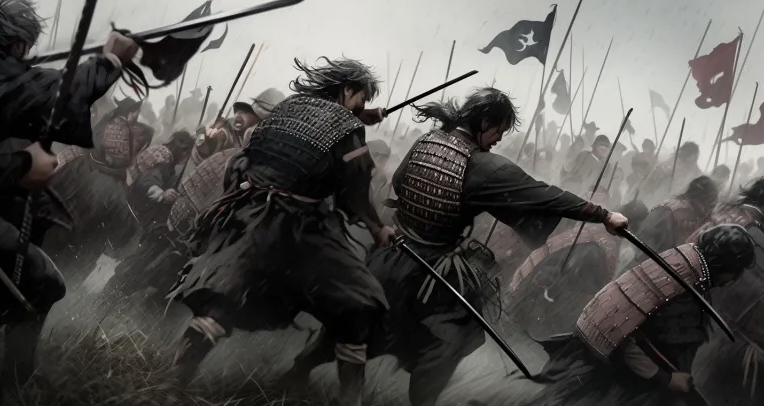
To be deadly serious is to suffer tunnel vision. Humor not only lightens your load, it broadens your vision.
There is a popular notion that being serious is the key to success. Yet, studies show that those who incorporate humor into their lives tend to be more confident, creative, and successful in their pursuits. This is because humor can help individuals broaden their vision and prevent them from becoming too tunnel-visioned, as it encourages a more open-minded attitude.When you take things too seriously, you become a victim of tunnel vision. You focus too much on one aspect of your life and become blind to other opportunities. This limits your vision and restricts your creativity. In contrast, humor allows for flexibility and adaptability. Humor keeps the mind open to various possibilities, leading to greater ideation and innovation.
Even when pursuing mastery in a particular field, a closed-minded attitude with an extreme cautious mind can hinder one’s growth. Mastery is achieved through a combination of hard work, dedication, and a willingness to learn from one’s mistakes. By adopting a more lighthearted approach, one can learn to embrace failure and turn mistakes into opportunities for growth.
As Bruce Lee once said, “be like water.” This famous quote is often interpreted to mean that we should be adaptable and flow with the circumstances around us. Water is flexible and resilient, constantly adapting to its environment. Similarly, incorporating humor into one’s life can help individuals become more flexible and adaptable, enabling them to face challenges with a more optimistic attitude.
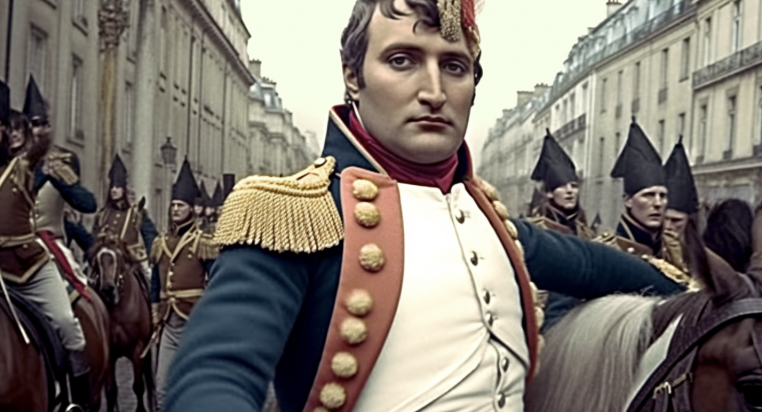
Don’t Fall Into One Of These Stereotypes : The Dabbler, The Obsessive, And The Hacker
The Dabbler
The pursuit of mastery is not for the faint-hearted. It takes grit, dedication, and a willingness to persevere through the inevitable plateaus that come with the journey. However, there are those who, despite their initial excitement, fall into a pattern of dabbling. The Dabbler, as we shall refer to this type of individual, is someone who gets easily excited about a new experience or skill but eventually loses interest once they reach a plateau.
It is worth noting that plateaus are an intrinsic part of the mastery journey. Mastery is not a linear path; there will be ups and downs, periods of growth and plateau, and moments of triumph and defeat. The key to success is to take the downs as opportunities to grow and learn. However, Dabblers, due to their attachment to the excitement and novelty of new experiences, often give up once they reach a plateau.
Why is this the case? The answer lies in the psychology of motivation. Dabblers, as defined by their name, dabble in a variety of experiences without fully committing to any one of them. They are motivated by the initial excitement that comes with a new experience, but once that excitement fades, they lose interest. They are unable to find the burst of excitement that they had at the beginning of their journey, and thus they give up.
Moreover, Dabblers often lack the necessary self-discipline to see their journey through. They may be easily distracted and lack focus, which makes it difficult for them to make progress towards their goal. Their lack of discipline also means that they may not be willing to put in the necessary time and effort to master their chosen skill or experience fully.
It is essential to note that being a Dabbler does not mean that one cannot be successful in their pursuit of mastery. Dabblers are often creative and curious individuals who enjoy exploring new experiences. However, they must learn to recognize the value of perseverance and commitment to see their journey through to the end.

The Obsessive
The pursuit of mastery is often viewed as a linear journey, with constant progress being the only acceptable outcome. The obsessive, in particular, is a type of person who believes that plateaus can be skipped entirely. This deeply ingrained belief leads to a relentless drive to maintain constant progress, with little regard for the potential consequences.
At first, the obsessive will see significant improvements in their chosen area of mastery. They will put in long hours, work with intensity, and push themselves to their limits. However, as time goes on, the obsessive is likely to become increasingly burnt out. The constant drive for progress is unsustainable and will cause the practitioner to experience frustration, exhaustion, and burnout.
As the obsessive struggles to maintain their pace of constant progress, they will inevitably stray from the path of mastery. They may initiate a new pursuit or abandon the quest for mastery altogether. The end result is the same: the obsessive will not achieve their desired outcome, and the journey will end in disappointment.
The solution lies in embracing a more realistic and sustainable approach to mastery. Mastery is not a journey that can be rushed. It is a lifelong pursuit that requires patience, persistence, and a willingness to learn and grow. Instead of focusing on constant progress, the practitioner should aim to be a lifelong learner and a marathon runner.
In the pursuit of mastery, there will inevitably be plateaus. Rather than viewing these plateaus as barriers to progress, the practitioner should see them as opportunities to hone their skills and deepen their understanding of their chosen area of mastery. The marathon runner understands that pacing oneself is key to completing the race, just as taking breaks along the path of mastery is essential to achieving long-term success.

The Hacker
In the world of computing and information technology, the term “hacker” has a number of different connotations. Some envision a hacker as a nefarious individual, seeking to breach security protocols and steal sensitive data for their own gain. Others imagine a more benign hacker, someone who works tirelessly to find new and innovative ways to improve systems and programs.In reality, the term “hacker” can refer to both of these types of individuals, as well as many others in between. At the core of the idea of a hacker, however, is the notion of someone looking for a way to circumvent the established rules and protocols in order to achieve a specific goal.
The problem with this mindset, however, is that it often leads to a lack of effort and a lack of focus on the fundamentals of any given system. Instead of dedicating oneself to learning the ins and outs of a particular program or technology, the hacker is more interested in finding shortcuts or workarounds that allow them to bypass the hard work required to truly master a system.
This is particularly problematic in the context of mastery systems, which are designed to encourage individuals to put in the time and effort required to fully understand and utilize a particular skill or area of knowledge. These systems typically require significant dedication, patience, and diligence in order to achieve success. Simply attempting to “hack” the system, therefore, is unlikely to be an effective or sustainable approach.
Instead, those seeking to become true experts in a particular field must be willing to put in the work required to learn the fundamentals of that field. This means spending hours studying, practicing, and experimenting with the tools and techniques that are essential to success in that domain.
While it is certainly possible to work smarter rather than harder, this approach should only be taken after the foundational work has been accomplished. Attempting to shortcut the process of mastery through hacking or other means is likely to lead to frustration, disappointment, and ultimately a lack of real progress.

“Goals and contingencies are important. But they exist in the future and the past, beyond the pale of the sensory realm. Practice, the path of mastery, exists only in the present”
In the pursuit of success, it’s natural for individuals to set goals and contingencies to pave their paths forward. However, it’s imperative to understand that these constructs only exist in the past or future, beyond the reach of our sensory realm. True mastery lies in the present moment- through diligent and consistent practice. It’s worth noting that every accomplishment, every milestone, is only realized in a fleeting moment, a mere speck in the grand scheme of things. Whether it’s crossing the finish line first or landing that coveted job, the actual moment of achievement is only a fraction of time. When we construe our life goals and focus too heavily on future outcomes, we lose sight of the present moment.
Similarly, the past can be a useful source of reflection- a reference point for what we have achieved and the lessons we’ve learned. However, dwelling too much in the past distracts us from the essential task of building a better future now, in the present moment.
I can attest to the value of focus and dedication in the pursuit of mastery. When one focuses on the present, every action, every step, is taken with purpose and clarity. The present is where the foundations of future success are built; our actions in the here and now determine our future.
It’s essential to understand that distractions and obstacles are inevitable- life’s curveballs and unexpected events can easily derail our progress towards our goals. However, the key is to remain steadfast and committed to the present moment. Through consistent and dedicated practice, we cultivate not only the skills necessary to achieve our goals but also the resilience needed to navigate life’s many challenges.

When you love the plateau, you are fully aware of the present moment. You don’t project yourselves in a fictive future but enjoy the here and now.
When was the last time you found yourself on a plateau? That place where you feel like you’re not making any progress and everything seems to be moving at an agonizingly slow pace. Your initial inclination may be to feel frustrated or even stuck, but what if I told you that plateaus are actually great?When you find yourself on a plateau, it’s an opportunity to truly hone your skills and develop your craft. Instead of focusing on the end result or the rewards you hope to achieve, you can focus on the journey itself and enjoy the process. This allows you to stay fully present and aware in the moment, without being overcome by anxiety about the future.
In fact, when you love the plateau, you may find that time seems to fade away entirely. You are fully immersed in the process of improving and developing your skills, and the notion of time becomes irrelevant. In essence, plateaus help you regain your mastery mindset and cultivate the level of patience necessary to see true growth and development.
By focusing on the journey instead of the destination, you give yourself permission to slow down and take the time necessary to develop the skills that will ultimately lead to success. Rather than becoming anxious or worried about the passage of time, you can embrace the plateau and continue to make incremental gains without losing sight of the present moment.
As you continue to work through the plateau, you will likely find that your progress begins to accelerate once again. But even as you move forward, it’s important to remember the value of the plateau and the level of peace and calm it can bring to your mind and your practice.
So the next time you find yourself on a plateau, think of it not as an obstacle but as an opportunity. Embrace the experience of being fully present in the moment and savor the opportunity to hone your skills and develop your craft. With a little patience and a whole lot of love for the process, you’ll overcome the plateau and continue to thrive on your journey towards success.

The five elements of the master journey
1- Instruction
The journey towards mastering a certain field or skill can be a challenging and daunting process. It takes a lot of time, effort, and dedication to achieve excellence. While one can certainly learn a lot from books and video classes, there’s no substitute for one-on-one mentoring with a master in the field. Unfortunately, this is not always feasible or affordable for many people.However, the truth is that the best way to become a master in any field is by learning directly from someone who has already achieved mastery themselves. This is because when you work with a mentor, you will receive feedback on what you are doing, and this will help you to improve much faster.
When you are working on a skill all by yourself, your progress might be slower and less efficient because you won’t have anyone to correct you or guide you. With a mentor, they’ll be able to pinpoint areas that you need to work on, and provide you with the right advice and feedback to help you progress faster.
Of course, finding a mentor might not always be easy. Certain industries or areas of work might not have an established mentorship program or even any possible mentors you can approach for guidance. Even if they do exist, their time and expertise can come with a high cost.
So, if you’re struggling to find a mentor, how can you approach this situation? One solution is to find ways to bring value to them in exchange for their advice and mentorship. This might mean offering your skills and expertise for free, or volunteering to assist them on a project they are working on.
In any case, the value of having a mentor cannot be overstated. They can teach you valuable lessons, share their own experience and knowledge to help you navigate different challenges. They can also offer a unique perspective on what it takes to be a master in your field and guide you towards the path of success.
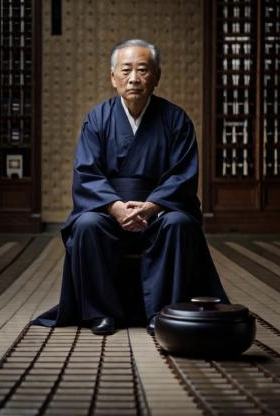
Be Aware Of The Qualities Of A Great Instructor
If you’re looking to learn a new skill or improve your current abilities, finding a great instructor is crucial. However, it’s important to note that not all great masters make great instructors. Being a skilled practitioner doesn’t necessarily translate into being able to effectively teach others. So what qualities should you look for in an instructor to ensure a positive and effective learning experience? First and foremost, a great instructor should be patient. Learning a new skill takes time and not everyone can pick it up quickly. An instructor who isn’t patient with slow learners or doesn’t take the time to make sure their students understand each step of the process can be frustrating and discouraging. Patience is key to helping learners feel confident and comfortable in their ability to learn and grow.
In addition to patience, a great instructor should also be positive and encouraging. It’s easy to fall into the trap of focusing solely on what a student is doing wrong and criticizing them for it. However, studies have shown that instructors who give equal importance to negative and positive feedback tend to be more effective. When an instructor offers positive feedback, it boosts the confidence of the student and motivates them to continue learning and improving.
Contrary to what some may think, tough love doesn’t always work in the classroom. Instructors who are overly harsh or critical can be demotivating to students. Learning should be a positive experience, and having an instructor who creates a safe and nurturing environment is key to ensuring this.
Another important quality of a great instructor is being able to adapt their teaching style to the individual needs of each student. No two students are the same, and the way each student learns may be different. A great instructor should be able to recognize these differences and adjust their teaching style accordingly.
Lastly, it’s important for a great instructor to be passionate about what they’re teaching. Passion is contagious and when an instructor is truly invested in the subject matter, it can inspire students to similarly become invested in the learning process. It’s important for an instructor to not only be knowledgeable about the skill they’re teaching, but also be able to convey that knowledge and excitement to their students.

2- Practice
“To practice regularly, even when you seem to be getting nowhere, might at first seem onerous. But the day eventually comes when practicing becomes a treasured part of your life.”
Becoming a master in any discipline requires a great deal of practice. However, practicing regularly can be a daunting task and may seem like an arduous undertaking. But the day will come when practicing becomes a significant and cherished part of your life.Mastery is not attainable without practice, and the process of practicing is not always easy. It is essential to love what you do and have a passion for the process that comes with practicing. When you love the process, it becomes more accessible to go the extra mile, and it becomes easier to continue honing your craft. The state of flow is one that all experts in a particular field will appreciate.
The flow state is a state of mind where nothing else matters. You become so engrossed in what you are doing that time seems to fly by. And because time isn’t a limiting factor, lifelong learning is no longer an issue as it may have been. It is possible to become a master in any discipline by having the passion to keep practicing, even when there are apparent setbacks.
The journey to mastering any art is not always easy. Sometimes it gets tough, and you will feel like giving up. But that is normal, and it happens to even the best of us. However, what distinguishes the greats from the rest is their resilience in the face of setbacks. They keep on going, driven by the love of what they do. Through practice, they have learned the value of perseverance and grit.
In the words of Aristotle, “We are what we repeatedly do. Excellence, then, is not an act, but a habit.” By making a practice a habit, you create the perfect conditions for growth and learning. You also develop the confidence to continue engaging in practice, knowing that mastery is a journey and not a destination.

3- Surrender
Surrender is a word that is not commonly associated with mastery. However, it is an essential part of the process. To become a true master, one must let go of any form of ostentation or ego. Humility is key; it allows us to be open to new ideas and concepts. Without it, our minds become closed, and we become stagnant.In the pursuit of mastery, we must be willing to unlearn. This may seem counterintuitive, but it is necessary. We can never become true masters if we cling to old beliefs and ideas. We must let go of what we think we know and approach each learning experience with an open mind.
The role of a teacher or master is to guide us on this journey. However, they do not want to waste their time with a student who believes they already know everything. To truly learn, we must surrender our pride and acknowledge that there is always more to discover.
One of the keys to mastery is cultivating genuine curiosity. We must approach every new concept and idea with a thirst for knowledge. This requires us to keep a beginner’s mind even as we continue to develop our skills. It is not enough to master one area; we must be willing to expand our knowledge and skills continuously.
Surrender is an act of bravery. It requires us to be vulnerable, to let go of our ego, and embrace the unknown. However, by doing so, we open ourselves up to limitless possibilities. It is only by surrendering that we can truly become masters of our craft.

4- Intentionality
In the world of crafting, intentionality is a concept that cannot be ignored. It is the practice of being mindful when you are working on a project. It requires a level of focus and presence that ultimately leads to a higher quality of work. In this blog post, we will explore the importance of intentionality and how it can be applied to your crafting endeavors.To start, it is essential to understand the meaning of intentionality. At its core, intentionality is about setting an intention or goal before beginning your work. It is a practice of visualization, where you imagine the outcome of your efforts before you even begin. This type of thinking sets the stage for a more mindful approach to your craft.
When you start your crafting project with intentionality, you set the foundation for your work. You have a clear idea of what you want to achieve and how you want your project to look. This clarity creates focus, which will help you stay on track and avoid distractions. It also enables you to stay motivated, even when the work becomes challenging.
Another important aspect of intentionality is the ability to be fully present in your work. This means being entirely focused on the task at hand and not getting sidetracked by other thoughts or concerns. When you are present, you can immerse yourself in your work, and this leads to a higher level of craftsmanship.
Additionally, intentionality helps to cultivate a sense of mindfulness. Being mindful means paying attention to the present moment with an open mind and without judgment. This attitude is especially critical in crafting, as it allows you to see mistakes as opportunities for growth rather than failures.

Be aware of homeostasis
Homeostasis is a fascinating and complex mechanism designed by our body to maintain equilibrium in a changing environment. As humans, we undergo different types of stress in our daily lives, and homeostasis plays a vital role in regulating and balancing our bodily functions to cope with such stress.For instance, when we work out or engage in physical activity, our body temperature rises, and we begin to sweat to stabilize our temperature. Similarly, when we experience emotional stress or anxiety, our body releases hormones and chemicals to help us cope with such situations. This is all possible due to the intricate balance that homeostasis helps us maintain.
However, it is important to note that while homeostasis serves a beneficial purpose, it can also act as a hindrance when we attempt to make significant changes in our lives. When we commit to deep and meaningful transformations in our lives, we may encounter obstacles that homeostasis creates, preventing us from pushing beyond our limits.
For example, after a long day of work, you may feel fatigued and exhausted, but your body may send signals to resist any further changes and maintain the status quo. This resistance can sometimes manifest in the form of dizziness, panic attacks, or other physical and emotional hurdles, compelling us to revert to our previous state, even when it does not serve us well.
Moreover, when we make significant changes in our lives, our social surroundings also impact our journey. Friends and family members may express discomfort and opposition to our transformations because they are accustomed to our previous lifestyles and modes of being. Common phrases such as “you’ve changed”, “you’re crazy” are often uttered to dissuade us from continuing with our plans.
To counteract these hindrances, it may be necessary to isolate ourselves, at least temporarily, from our social surroundings to maintain focus and continue with our desired transformation. Recognizing the role that homeostasis plays in our lives enables us to stay vigilant and mindful of our physical and emotional reactions.

Pitfalls Along The Path
Don’t become obsessively goal oriented:
In today’s society, we are constantly bombarded with messages that encourage us to be goal-oriented. From business leaders to self-help gurus, the message is clear: set your sights on a specific outcome, work hard to achieve it, and then reap the rewards. However, this mindset may not always be the healthiest or most effective approach to achieving success.In fact, becoming obsessively goal-oriented can lead to a number of negative consequences. When we focus solely on the end game, we may overlook important steps along the way or fail to appreciate the journey itself. This can lead to feelings of frustration and burnout, as well as a sense that our efforts are never enough.
Furthermore, when we become too attached to a specific outcome, we may experience heightened levels of stress and anxiety. We may feel that our self-worth is tied up in achieving a particular goal, and if we fall short, we may experience feelings of shame or failure.
So, what can we do to avoid becoming obsessively goal-oriented? One approach is to embrace a more mindful approach to our pursuits. Instead of fixating on a specific outcome, we can focus on the present moment and the steps we need to take to move forward. By doing so, we can cultivate a sense of presence and purpose that can help sustain us along the way.
We can also make an effort to appreciate the journey itself, rather than just the destination. This means finding joy in the process of working towards our goals, rather than simply waiting for the end result. Whether it’s taking pleasure in small accomplishments or finding meaning in the challenges we face, there are many ways to shift our focus from the outcome to the journey.
Ultimately, the key to not becoming obsessively goal-oriented is to remain flexible and adaptable. As we progress towards our goals, we may encounter obstacles or setbacks that require us to change course or adjust our expectations. By remaining open to new possibilities and approaches, we can cultivate resilience and perseverance that will serve us in all areas of our lives.

Poor instruction
Poor Instruction: The Importance of Having a Skilled Teacher
We understand the significant role a skilled teacher plays in the education industry. The right teacher is key in shaping the future of their students. Unfortunately, not all teachers possess the same skills needed to provide their students with the best possible education. Poor instruction is a serious issue that needs to be addressed.
Many students face disappointing results due to a lack of guidance and proper instruction. It’s not enough to teach the material. A good teacher must understand how to inspire and motivate their students through clear communication, effective teaching methods, and constructive feedback.
A skilled teacher helps their students reach their potential by providing support and guidance every step of the way. However, it’s critical to identify the right teacher for the job. Do your research and look at their student’s success rates. A successful teacher is one who encourages their students to succeed and achieve their full potential.
One common mistake is treating a teacher as a guru. You don’t need to blindly accept everything they say. Remain critical and question their methods when necessary. Remember, a good discussion can lead to excellent results and help you avoid a dead-end situation.

Lack of competitiveness and Over-competitiveness
In today’s society, competition is always encouraged and praised. From school to the workplace, it seems like everyone is chasing after the top prize or medal. However, it’s important to consider the potential downsides of both the lack of competitiveness and over-competitiveness. In this blog, we’ll explore how excessive external motivation and perfectionism can hinder your progress and ultimately lead to a lack of discipline and fear of failure.Let’s start by discussing external motivation and the use of prizes and medals to drive performance. While it can be effective at first, it doesn’t always lead to consistent and sustainable results. When individuals are solely focused on winning, they may lose sight of the process and sacrifice discipline and hard work in pursuit of the prize. Additionally, when the prize is not attainable, it can hurt self-esteem and drive even further.
On the other hand, excessive perfectionism can lead to procrastination and fear of failure. The need to achieve perfection means that individuals may avoid taking risks or trying new things for fear of making mistakes. As a result, progress is halted, and growth becomes stunted.
To combat these issues, it’s important to understand that good enough is, in fact, good enough. Focus on the process of getting better, acknowledge the work done and the improvements made, and strive for progress, not perfection. The master stays on the course, acknowledges failures, but keeps trying again and again.


